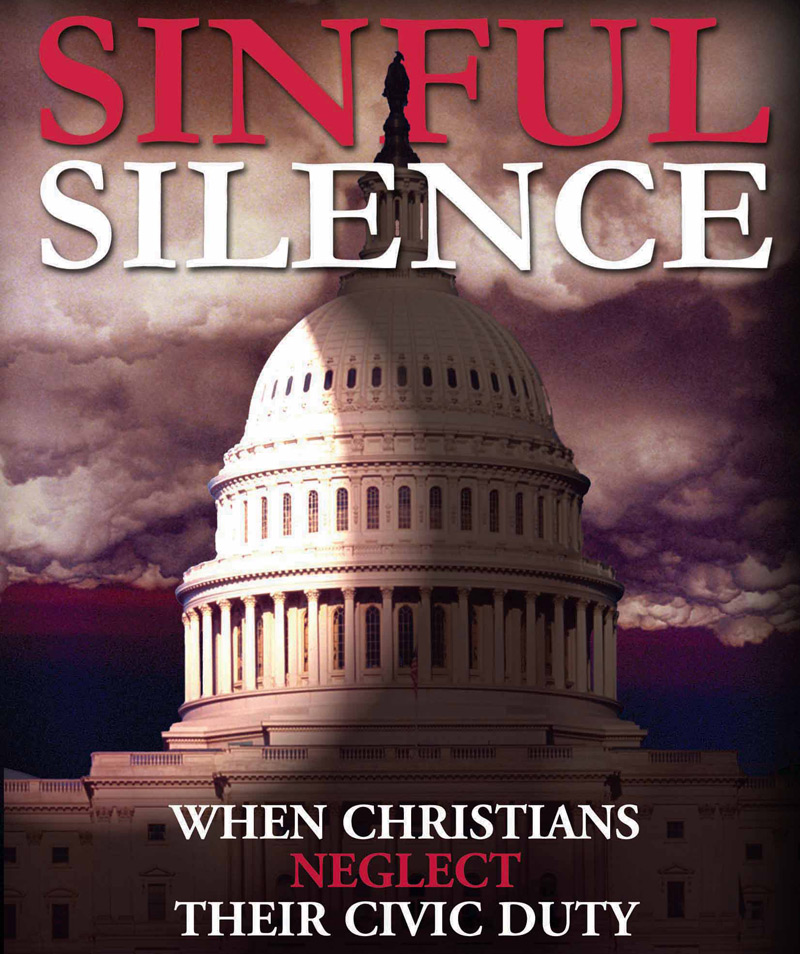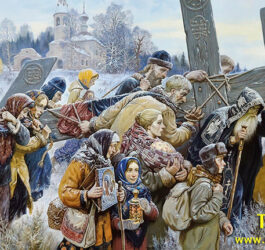 Book Review by Chris Banescu
Book Review by Chris Banescu
In the book “ Sinful Silence: When Christians Neglect Civic Duty” authors Ken Connor and John Revell make a strong case that Christians have a sacred responsibility to apply and uphold God’s laws and biblical principles in all areas of civil government. They correctly point out that “we as citizens are liable for the decisions of our elected representative leaders, even if we are not directly involved in their activities.” Christians living in a secular world cannot neglect their civil duties and ignore their responsibilities to choose moral, just, and God-fearing leaders.
Relying heavily on the book of Isaiah, which calls on the faithful to “Learn to do right! Seek justice, encourage the oppressed. Defend the cause of the fatherless, plead the case of the widow,” the authors encourage Christians to stay active and involved in all areas of civil life in order to positively and appropriately influence the culture and civil organizations in America.
Christians must uphold moral principles in all areas of their lives and provide the proper balance and perspectives in all civil matters, not just inside their churches and religious organizations. Matthew’s Gospel, 5:13-16, is referenced to emphasize Christ’s calls to His followers to be salt and light in the world. This “passage calls the Lord’s followers to have a positive, moral impact on our world, an impact that deters moral decay and address moral darkness. … When we fail to vote, or when we vote for a leader whose platform advances or allows moral decay and darkness, or when we fail to hold elected leaders accountable in these areas, we fail to function as salt and light. In other words, we disobey the Lord,” write Connor and Revell.
The critical issues of abortion and the sanctity of life are also discussed at length in the book. “God’s heart cries out for the helpless and oppressed. In His love, He still holds human life precious and wants it protected. Yet when we elect so-called “pro-choice” candidates (or allow their election by not voting!) who perpetuate the legalized slaughter of the helpless, how can we honestly claim to love God?”
Connor and Revell further underscore the Christian citizen’s duty to vote for the right representatives and take a stand on important issues of the day: “When we remain silent at the polls or when we don’t call our representatives to action in these areas, the watching world could falsely conclude from our actions that God is not really concerned about these issues. They then could logically conclude that the vocal minority of politically active Christians don’t truly represent God’s heart, but are instead ‘religious right’ fringe fanatics who should be dismissed and ignored as such.”
The authors correctly point out that “seeking first His kingdom does not negate an active concern for God’s civil standards; rather it invokes such a concern.” Since God created the world He loves all people regardless of religious affiliation; especially the innocent, the sick, and the defenseless. As Christians when we ignore our civil duties we sin because such inaction can hurt the very people God wants us to love and care for.
Sinful Silence reinforces the important truth that Christ is Lord of all creation, including all aspects of civil, political, and judicial organizations. “As God’s people, our priorities, actions, and affections are to project His nature to the world so that the lost can get a glimpse of what God is like,” write Connor and Revell. Christians cannot segregate themselves from the civil government that represents them and successfully fulfill their duties and obligations as God’s chosen people.
Christianity requires us to not only stay faithful to Christ’s teachings and our religious traditions, but to also actively engage our society and civil authorities and help them reflect God’s wisdom, truth, and love. Anything less will mean that our Christian calling is missing a key characteristic that God has always expected from His people and their works; both in the Old and also the New Testament.
In the Gospel of St. Matthew Jesus teaches us: “let your light so shine before men, that they may see your good works and glorify your Father in heaven.” (Matthew 5:16) In their book, Connor and Revell effectively remind us that this light must also shine on our civil duties and responsibilities.



